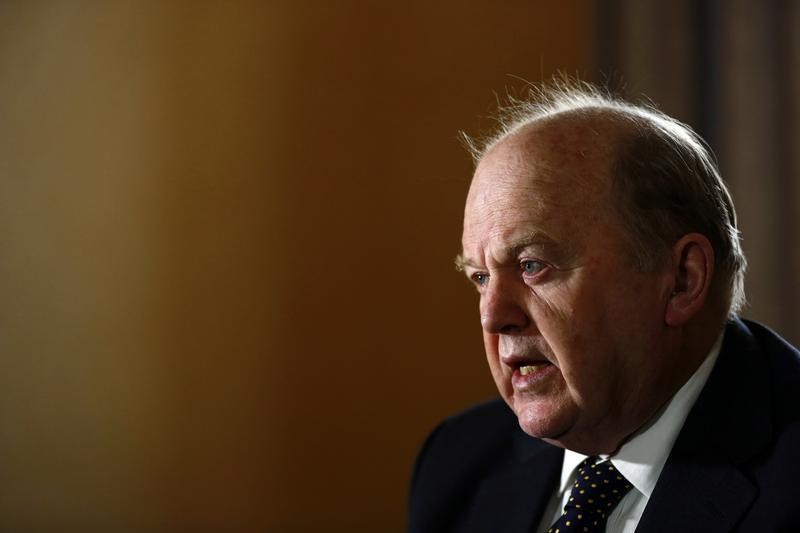DUBLIN (Reuters) - Ireland is under considerable risk of breaking European Union-imposed fiscal rules next year under budgetary plans that endanger a return to ill-fated policies of the past, the country's independent fiscal watchdog said on Thursday.
Ireland has consistently beaten targets to cut a budget deficit that ballooned during the country's debt crisis, thanks to an economic rebound from the downturn that forced the government into a three-year aid programme in 2010.
Finance minister Michael Noonan said in April he would have 1.2-1.5 billion euros (£883 million-£1.1 billion) extra in October's budget for 2016 to cut tax rates and spend more while still adhering to the rules that require Ireland to balance its budget by 2018.
However Ireland's Fiscal Advisory Council said this would mean Ireland would not meet the required 0.6 percent improvement in its structural deficit next year, referring to the measure which strips out the effects of the economic cycle.
A budget package of around 700 million euros would instead be required to meet the requirements, Chairman John McHale told a news conference.
The projection by Ireland's finance department of a 0.3 percent improvement would not be large enough to be deemed a "significant deviation" under the EU rules, the council said, but it is still a serious concern, particularly ahead of elections next year.
"Without a strong framework, there is a risk that as crisis memories fade support for sound fiscal policy will fade too," the council said in its latest fiscal assessment report.
"Political pressures related to the electoral cycle could result in budgetary policy moving in an overly expansionary and therefore pro-cyclical direction, despite the damage this has caused in the past."

The council, set up under the terms of the 2010 bailout, has powers to endorse budget forecasts and assess compliance with budgetary rules but much of its advice has fallen on deaf ears.